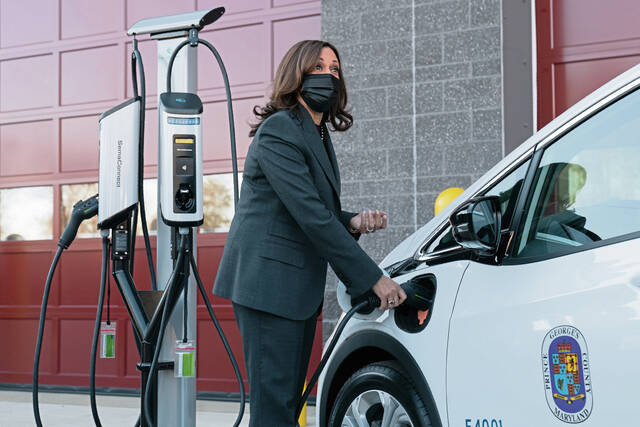Let me get this straight: The most serious problem facing the U.S. (and the entire Earth) is global warming, according to President Biden. On Sept. 6, 2019, Biden said “We‘re going to end fossil fuel.” He makes similar statements very often. There are immense efforts to promote this projected catastrophe and calls to stop using hydrocarbon fossil fuels immediately.
Biden has reduced the availability of fossil fuels in this country by his executive actions and is considering importing oil from OPEC (Saudi Arabia, Venezuela or even Iran). Any oil that’s imported from any of these countries will have more impurities than the oil extracted here, which adds unnecessary cost to our refiners.
Let’s look at the reality of everyday life in the United States.
At the end of 2021, there were 289,500,000 registered vehicles in the U.S. powered by fossil fuels (gasoline, diesel, natural gas) that need these forms of energy to move, plus airplanes, military equipment, ships of different sizes, etc. American oil refiners must continue to produce for the everyday needs of the transportation segment.
By the way, there were only about 608,000 registered all-electric cars in the U.S. at the end of 2021.
The other important market segment is the 6 million homes that use oil (or propane) as their sole heating source. “We’re going to end fossil fuel” will create a real crisis for much of rural America in the winter. In addition, 47 million U.S. households use propane to fuel outdoor gas grills. There go your tailgate parties!
We need fossil fuels for many other everyday activities. Crude oil and other liquids produced from fossil fuels are refined into petroleum products that are used for many different purposes. The petrochemical industry uses petroleum to make plastics, polyurethane, solvents and hundreds of other products such as:
• Fertilizers — “We‘re going to end fossil fuel” would have a major negative impact on both the backyard gardener and our very efficient farmers in producing our food.
• Aspirin — When you get a headache and take aspirin, remember it includes benzene, which is derived from petroleum.
• Polyester — Polyester is a synthetic petroleum fiber incorporated into 60% of clothing worldwide.
• Tires — The two primary ingredients in tires are rubber and carbon black made from oil and natural gas together with other chemicals.
• Asphalt — Many roads, parking lots, driveways, etc. use this inexpensive product made from fossil fuels.
And remember: All electric cars need the last two products, plus plastics, fluids, etc.
The political wisdom of replacing fossil fuels in the generation of electricity (including nuclear) with wind power and solar power is not practical. At the end of 2021, wind and solar power amounted to less than 10% of the total, with the rest provided by more reliable central generating stations. Reliable and economic forms of electricity generation is the lifeblood of everyday activities.
Reducing coal use at central generating stations, and replacing much of it with clean burning natural gas extracted here in America, results in greatly reduced pollution. According to the Dec. 30, 2021 report from the U.S. Energy Information Administration, “in 2020, as the country responded to the covid-19 pandemic, CO2 emissions from energy consumption in the United States fell to the lowest level since 1983.”
Edwin Drake in 1859 drilled the first commercial oil well along the banks of Oil Creek in Pennsylvania. Emerging industrial societies used whale oil in oil lamps and to make soap. With the commercial development of the petroleum industry and vegetable oils, the use of whale oil declined considerably from its peak in the 19th century into the 20th century. This is said to have saved the whales from extinction.
Fossil fuels are needed … until something else comes along.
Ross Farber of Hempfield holds degrees in mechanical and electrical engineering from Penn State. Now retired, he worked at the Elliott Co., Jeannette, for 25 years and then was self-employed in industrial marketing and electrical distribution.








